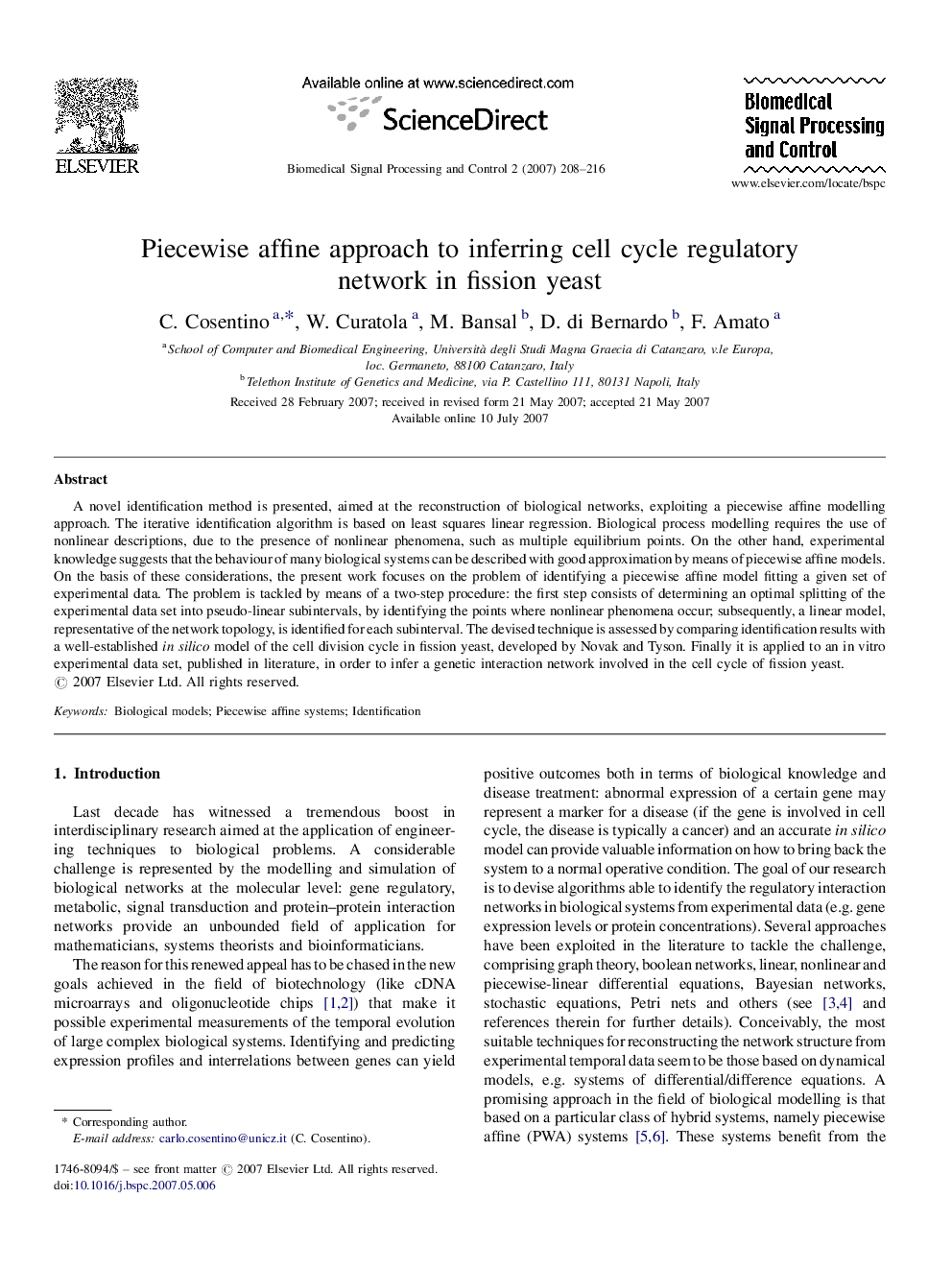| Article ID | Journal | Published Year | Pages | File Type |
|---|---|---|---|---|
| 558141 | Biomedical Signal Processing and Control | 2007 | 9 Pages |
A novel identification method is presented, aimed at the reconstruction of biological networks, exploiting a piecewise affine modelling approach. The iterative identification algorithm is based on least squares linear regression. Biological process modelling requires the use of nonlinear descriptions, due to the presence of nonlinear phenomena, such as multiple equilibrium points. On the other hand, experimental knowledge suggests that the behaviour of many biological systems can be described with good approximation by means of piecewise affine models. On the basis of these considerations, the present work focuses on the problem of identifying a piecewise affine model fitting a given set of experimental data. The problem is tackled by means of a two-step procedure: the first step consists of determining an optimal splitting of the experimental data set into pseudo-linear subintervals, by identifying the points where nonlinear phenomena occur; subsequently, a linear model, representative of the network topology, is identified for each subinterval. The devised technique is assessed by comparing identification results with a well-established in silico model of the cell division cycle in fission yeast, developed by Novak and Tyson. Finally it is applied to an in vitro experimental data set, published in literature, in order to infer a genetic interaction network involved in the cell cycle of fission yeast.
